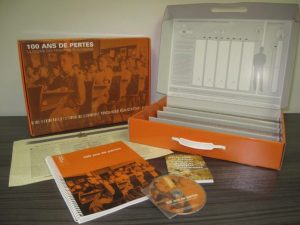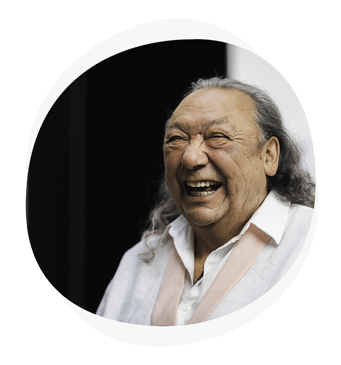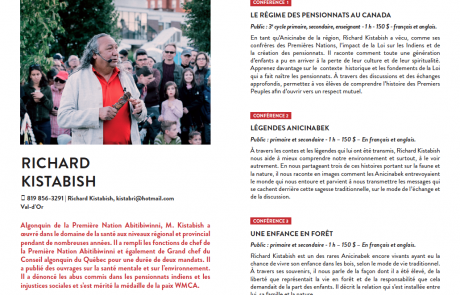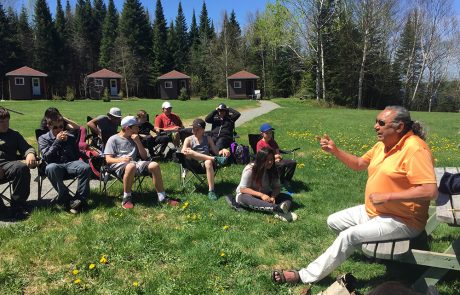Richard Ejinagosi Kistabish
Richard Kistabish is an Anicinabe (Algonquin) from the First Nation community of Abitibiwinni, Quebec, Canada. He fluently speaks French and English, as well as Anicinabemowin, his traditional language. He grew up in the boreal forest on the shores of the Harricana River, where he was raised in his language, learning to practice the culture of his ancestors, until the age of six. He was then sent to the Indian residential school in St-Marc-de-Figuery, near Amos, where he lived until the age of 16. Richard was born Ejinagosi, a name that predestined him to have an impact, since it means “the one who tells”. Therefore, he could not remain silent in the face of the cultural genocide of Canada’s First Peoples.
Nid anicinabe ijitawinan odehi nid ijigijewinan, ni kacka emidaman, kidji nepidji tagok ka iji nedimiyak, ka iji inabidimak enigokwakamigak, kidji mizeyabidamak kidji manactowatc ka mamakatenidagok acitc e ijinagoziyak pepjik nid acinabe akinanan.
“Our language is the heart and soul of our culture, as it allows us to communicate with each other, to perpetuate our concepts, our vision of the world, in a holistic way while respecting the uniqueness and characteristics of our respective communities. Language unites and brings us together.”
All his life, Richard Kistabish has been committed to defending, body and soul, the rightful recognition of his nation, but above all, he has paved the way towards the search for innovative solutions. At the local level, he was president of Minokin Social Services, and served as director and manager of the Kitcisakik Community Health Committee. He has also worked in the health and social services field at the regional and provincial levels for many years. Gradually, he has become a strong voice in his territory. He was elected Chief of the Abitibiwinni First Nation community and then Grand Chief of the Algonquin Council of Western Quebec for two terms. He later chose to withdraw from politics to become more involved in concrete action with indigenous communities.
In this interview, Richard talks about his experience at the Saint-Marc-de-Figuery Native residential school.
(“Peuples autochtones de l’Amérique du Nord.” © 1982 TÉLUQ — l’université à distance de l’UQAM)
Through the story of the first years of his life, by the Harricana river, and the legend of the birch tree, Richard shares his culture and vision of life.
(Directed by Dominic Leclerc)
Educational program
The Legacy of Hope Foundation created an educational kit for youth aged 11-18.






